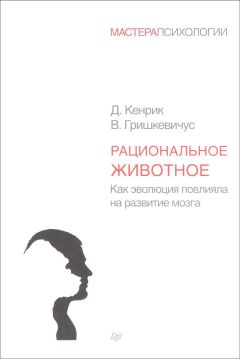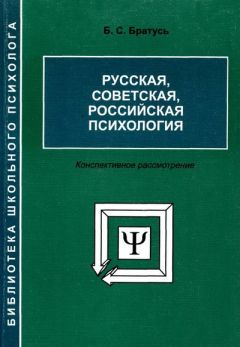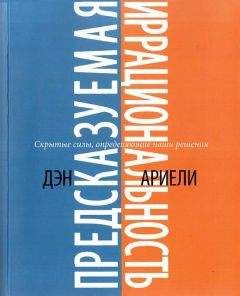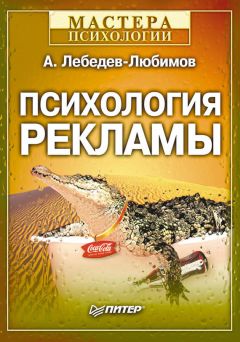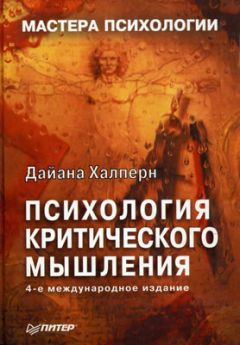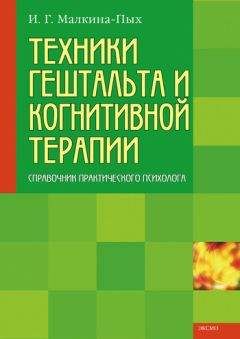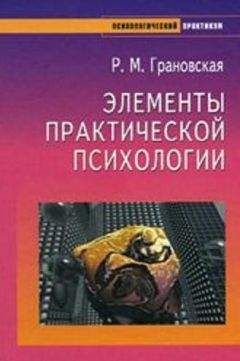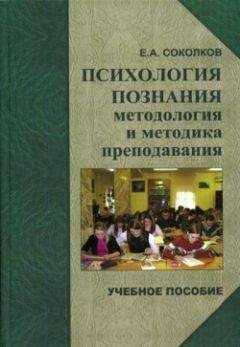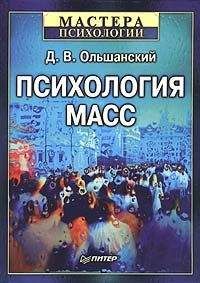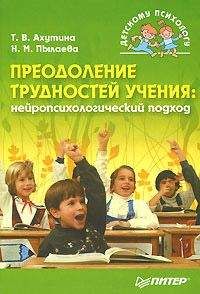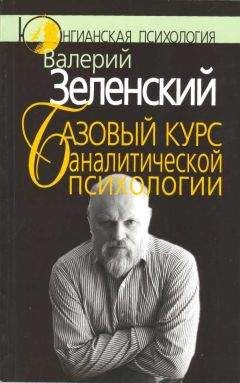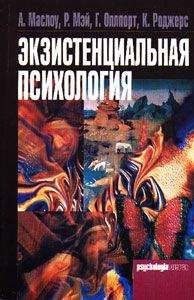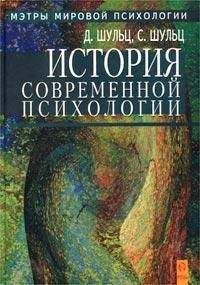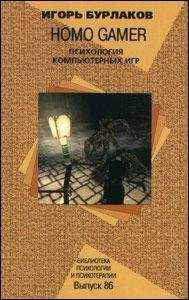Дайана Халперн - Психология критического мышления

Скачивание начинается... Если скачивание не началось автоматически, пожалуйста нажмите на эту ссылку.
Жалоба
Напишите нам, и мы в срочном порядке примем меры.
Описание книги "Психология критического мышления"
Описание и краткое содержание "Психология критического мышления" читать бесплатно онлайн.
Эта книга написана в помощь тем, кто хочет научиться думать современно. Опираясь на новейшие достижения когнитивной психологии и свой уникальный педагогический опыт, Дайана Халперн разработала эффективную программу обучения навыкам «критического мышления». Данная книга может быть широко использована в преподавательской и методи-ческой работе, окажет неоценимую помощь в самообразовании, а кроме того, является свое-образным путеводителем по современной когнитивной психологии. Рекомендуется психологам, педагогам, философам, а также всем интересующимся когнитивной психологией, психологией творчества, теорией принятия решений.
Festinger I., Riecken И. W., Schacter, S. (1956). When prophecy fails. Minneapolis: University of Minnesota Press.
Feyerabend P. (1975). Against method. London: Verso.
Feynman R. (1989). What do you care what other people think? New York: Bantam.
Finke R. A., Ward Т. В., Smith S. M. (1992). Creative cognition: Theory, research, and applications. Cambridge, MA: Bradford.
Fischer G. W., Johnson E. J. (1986). Behavioral decision theory and political decision making. In R. R. Lau amp; D. O. Soars (Eds.), The 19th Annual Carnegie Symposium on Cognition: Political Cognition (pp 55-65) Hillsdale, NJ: Lawrence Erlbaum Associates.
Fischoff B. (1975). Hindsight^foresight: The effect of outcome knowledge on Judgment under uncertainty. Journal of Experimental Psychology: Human Perception and Performance, 1, 288-299.
Fischhoff B. (1993, March/April). Controversies over risk: Psychological perspective on competence. Psychological Science Agenda, 6, 8-9.
Fischoff В., Lichtenstein S., Slouic P., Derby S. L, Keeney R. L. (1981). Acceptable risk. Cambridge, England: Cambridge University Press.
Fisher R., Ury W. (1991). Getting to «yes»: Negotiating agreement without giving in (2nd ed.). New York: Penguin.
Fiske S. T. (1993). Controlling other people: The impact of power on stereotyping. American Psychologist, 48, 621-628.
Fiske S. T, Taylor S. E. (1984). Social cognition. New York: Random House. Fixx J F. (1978). Solve it. New York: Doubleday
Flesph /?. (1951). The art of clear thinking. New York: Harper amp; Row.
Fogelin R. J. (1987). Understanding arguments, an introduction to informal logic (3rd ed.). New York: Harcourt Brace.
Fong G. Т., Krantz D., Nisbett R. E. (1986). The effects of statistical training on thinking about everyday problems. Cognitive Psychology, 18, 253-292.
Fong G. Т., Nisbett. R. E. (1991). Immediate and delayed transfer of training effects in statistical reasoning. Journal of Experimental Psychology: Human Leanning and Cognition. 120, 34-45.
Footnotes. (1994, April 20). The Chronicle of Higher Education.
Fox L. S., Marsh G., Crandall Jr., J. С (1983, April 30). The effect of college classroom experiences on formal operational thinking. Paper presented at the 1983 Annual Convention of the Western Psychological Association, San Francisco.
Frammolino R. (1993, December 17). Most college GEDs fail simple tests, study finds. The Los Angeles Times, pp. A41, A43.
Frazier K. (Ed.). (1991). The hundredth monkey and other paradigms of the paranormal. Buffalo, NY: Prometheus.
Friedman S. L., Scholnick E. K., Cocking R. R. (Eds.). (1987). Blueprints for thinking: The role of planning jn cognitive development. Cambridge, MA: Cambridge University Press.
Fruzzetti A. E., Toland K., Teller S. A., Loftus E. A. (1992). Memory and eyewitness testimony. In M. M. Gruneberg and P. E. Morris (Eds.), Aspects of memory: The practical aspects (Vol. 1) 2nd ed. New York: Routledge.
Gardner И. (1982). Art, mind and brain: A cognitive
approach to creativity. New York: Basic Books. Gardner H. (1983). Frames of mind: The theory of multiple intelligences. New York Basic Books. Gardner H. (1985). The mind's new science: A history of the cognitive revolution. New York: Basic Books. Gardner H. (1989). To open minds. New York: Basic
Books.
Gardner H. (1993). Creating minds: An anatomy of creativity seen through the lives of Freud, Einstein, Picasso, Stravinsky, Eliot, Graham, and Gandhi. New York- Basic Books.
GarfieldJ.,Ahlgren,A. (1988). Difficulties in learning basic concepts in probability and statistics: Implications for research. Journal [or Research in Mathematics Education, 19(1), 44-63.
Garnham A., Oakhill J. (1994). Thinking and reasoning. Oxford, England: Blackwe.
Geiselman R. E., amp; Fisher R. P. (1985, December). Interviewing victims and witnesses of crime. Research in Brief, National Institute of justice, 1-4.
Gentner D., Gentner D. R. (1983). Flowing water or teeming crowds: Mental models of electricity. In D. Centner amp; A. L. Stevens (Eds.), Mental models. Hillsdale, NJ: Lawrence Erlbaum Associates.
Gerbner G., Grass L., Morgan M., Signorielli N. (1980). Violence profile No. 11: Trends in network television drama and viewer conceptions of social reality. Philadelphia: Annennberg School of Communication.
Gick M. I., Holyoak K. (1980). Analogical problem solving. Cognitive Psychology, 12, 306-355.
Gifford-Jones W. (1977). What every woman should know about hysterectomy. New York: Funk amp; Wagnalls.
Gilbreth F.B.(\963). Cheaper by the dozen. New York: Crowell.
Gilhooly K. J. (1987). Mental modeling: A framework for the study of thinking. In D. N. Perkins, J. Loch-head. amp; J. Bishop (Eds.), Thinking: The second international conference (pp. 19-32). Hillsdale, NJ: Lawrence Erlbaum Associates.
Gillette R. (1987, December 4). Exotic ways to learn doubted by U.S. study. The Wall Street Journal. pp. 1,32.
Gilovich T. (1991). How we know what isn't so: The fallibility of human reason in everyday life. New York: Macmillan.
Glaser R. (1984). Education and thinking: The role of knowledge. American Psychologist, 39,93-104.
Glaser R. (1992). Expert knowledge and processes of thinking. In D. F. Halpern (Ed.), Enhancing thinking skills in the sciences and mathematics (pp. 63-76). Hillsdale, NJ: Lawrence Erlbaum Associates.
Glucksberg S., Weisberg R. W. (1966). Verbal behavior and problem solving: Some effects of labeling in a functional fixedness problem. Journal of Experimental Psychology, 71, 659-664.
Goleman D., Kaufman P., Ray M. (1993). The creative spirit. New York: Penguin.
Gordon W. J. J. (1961). Synectics. New York: Harper amp; Row.
Gordon W. J. J. (1976). Metaphor and invention. In A. Rothenberg amp; С R. Hausman (Eds.), The creativity Question. Durham, NC: Duke University Press.
Govier T. (1985). A practical study of argument. Bel-mont, CA: Wadsworth.
Gray W. (1991). Thinking critically about new age ideas. Belmont. CA: Wadsworth.
Greeno J. G. (1973). The structure of memory and the process of solving problems. In R. L. Solso (Ed.), Contemporary issues in cognitive psychology. Washington DC: Winston.
Greeno J. G. (1992). Mathematical and scientific thinking in classrooms and other situations. In D. F, Halp-ern (Ed.), Enhancing thinking skills in the sciences and mathematics (pp. 39-62). Hillsdale, NJ: Lawrence Erlbaum Associates.
Griffiths D.HAl976). Physics teaching: Does it hinder intellectual development? American Journal of Physics, 44, 81-85.
Gruneberg M., Morris P. (Eds.), (1992). Aspects of memory; The practical aspects. (Vol. 1) 2nd. ed. New York: Routledge.
Cuilford J. P. (1977). Way beyond the IQ. Buffalo, NY: Creative Education Foundation.
Gunther M. (1977). The luck factor. New York: Mac-millan. Hadamard, J. (1954). The psychology of invention in the mathematical field. Princeton, NJ: Princeton University Press.
Hains A. A., Hains A. H. (1987). The effects of a cognitive strategy intervention on the problem solving abilities of delinquent youths. Journal of Adolescence, 10,399-413.
Halpern D. F. (1985). The influence of sex role stereotypes on prose recall. Sex Roles, 12, 363-375.
Halpern D. F. (1987a). Analogies as a critical thinking skill. In D. Berger, K. Peydek, amp; W. Banks (Eds.), Applications of cognitive psychology: Computing and education (pp. 75-86). Hillsdale, NJ: Lawrence Erlbaum Associates.
Halpern D. F. (1987b). Thinking across the disciplines: Methods and strategies to promote higher.order thinking in every classroom. In M. Heiman amp; J. Slomianko (Eds.), Thinking skills instruction: Concepts and techniques (pp. 69-76). Washington, DC; National Education Association.
Halpern D. F. (1992). Sex differences in cognitive abilities (2nd ed.). Hillsdale, NJ: Lawrence Erlbaum Associates.
Halpern D. F. (Ed.). (1994). Changing college classrooms: New teaching and learnng strategies for an increasingly complex world. San Francisco: Jossey-Bass.
Halpern D. F. (in press). The skewed logic of The Bell Curve. Skeptic.
Halpern D. F., Blackman S. (1985). Magazines vs. physicians. The influence of information source on intentions to use oral contraceptives. Women and Health, 10, 9-23.
Halpern D. F., Blackman S., Salzman B. (1989). Using statistical risk information to assess oral contraceptive safety. Applied Cognitive Psychology, 3,251-260.
Halpern D. E, Hansen C, Riefer D. (1990). Analogies as an aid to comprehension and memory. Journal of Educational Psychology, 82, 298-305. Halpern D. F., Irwin F. W. (1973). Selection of hypotheses as affected by their preference values. Journal of Experimental Psychology, 101, 105-108. Halpern D. E., Nummedal S. G. (Eds.). (1995). Psychologists teach critical thinking [Special Issue]. Teaching of Psychology, 22. Hanson N. R. (1958). Patterns of discovery. Cambridge,
England: Cambridge University Press. Harman G. (1986). Change in view: Principles of reasoning. Cambridge, MA: MIT Press. Harris R. J. (1977). Comprehension and pragmatic implications in advertising. Journal of Applied Psychology, 62, 603-608. Harris S. B. (1993). The resurrection myth in religion,
science, and science fiction. Skeptic, 2, 50-59. Hasher L., Zacks R. T. (1984). Automatic processing of fundamental information. American Psychologist, 39,1372-1388. Hayes J. R. (1978). Cognitive psychology. Homewood,
IL: Dorsey.
Hayes J. R. (1982). Issues in protocol analysis. In G. R. Ungson amp; D. N. Braunstein (Eds.), Decision making: An interdisciplinary approach. Boston: Kent. Hayes J. R. (1989). Cognitive processes in creativity. In J A. Glover, R. R. Ronning, amp; С R. Reynolds (Eds.), Handbook of creativity (pp. 135-145). New York: Plenum.
Heiman M., Slomianko J. (1986). Critical thinking skills. Washington, DC: National Education Association.
Heller /?., Sattzstein H. D., Caspe W. (1992). Heuristics in medical and non-medical decision-making. The Quarterly Journal of Experimental Psychology, pp. 211-235. HenleM. (1962). On the relation between logic and
thinking. Psychological Review, 69, 366-378. Hennessey B. A., Amabile Т. М. (1987). Creativity and learning. Washington, DC: National Education Association.
Hennessey B. A., Amabile T.M.(\988). The conditions of creativity. In R. J. Sternberg (Ed.), The nature of creativity: Contemporary psychological perspectives (pp. 11-38). Cambridge, MA: Cambridge University Press. Herrmann D. J. (1991). Super memory. Emmaus, PA:
Rodale.
Herrmann D. J., Weingartner H., Searleman A., McE-voy C. L. (Eds.). (1992). Memory improvement: Implications/or memory theory. New York: Spring-er-Verlag.
Herrnstein R. J., Murray C. (1994). The bell curve: Intelligence and class structure in American life. New York; The Free Press.
Herrnstein R. J., Nickerson R. S., Sanchez M., Swets J. A. (1986). Teaching thinking skills. American Psychologist, 41, 1279-1289.
Hill P., Bedau H., Checile R., Crochetiere W., Keller-man В., Dunjian D., Pauker S., Rubin J. (1979). Making decisions: A multidisciplinary introduction. Reading, MA: Addison-Wesley.
Hitchcock D. (1983). Critical thinking: A guide to evaluating information. Toronto: Methuen.
Hogarth R. M. (1988). Judgment and choice: The psychology of decision (2nd ed.). Chichester, England: Wiley.
Holland J. H., Holy oak K. J., Nisbett R. Ј., Thagard P. R. (1986). Induction: Processes of inference, learning, and discovery. Cambridge, MA: MIT Press.
Holley C. D., Dansereau D. F. (1984). Networking: The technique and the empirical evidence. In C. D. Holley amp; D. F. Dansereau (Eds.), Spatial learning strategies: Techniques, applications, and related issues (pp. 81-108). New York: Academic Press.
Holley C. D., Dansereau D. F., McDonald B. A., Garland J. D., Collins K. W. (1979). Evaluation of a hierarchical mapping technique as an aid to prose processing. Contemporary Educational Psychology, 4, 227-237.
Holt J. (1964). How children fail. New York: Dell.
Holt J. (1989). Learning all the time. Reading, MA: Addison-Wesley.
Hostetler A. J. (1988, January). Army eyes novel learning methods. The American Psychological Association Monitor, 19, 7.
Huff D. (1954). How to lie with statistics. New York: Norton.
Hunt E. (1989). Cognitive science: Definition, status, and questions. In M. R. Rosenzweig amp; L. W. Porter (Eds.), Annual review of psychology, 40,603-630.
Hunt M. (1982). The universe within. A new science explores the human mind. New York: Simon amp;: Schustec.
Подписывайтесь на наши страницы в социальных сетях.
Будьте в курсе последних книжных новинок, комментируйте, обсуждайте. Мы ждём Вас!
Похожие книги на "Психология критического мышления"
Книги похожие на "Психология критического мышления" читать онлайн или скачать бесплатно полные версии.
Мы рекомендуем Вам зарегистрироваться либо войти на сайт под своим именем.
Отзывы о "Дайана Халперн - Психология критического мышления"
Отзывы читателей о книге "Психология критического мышления", комментарии и мнения людей о произведении.





